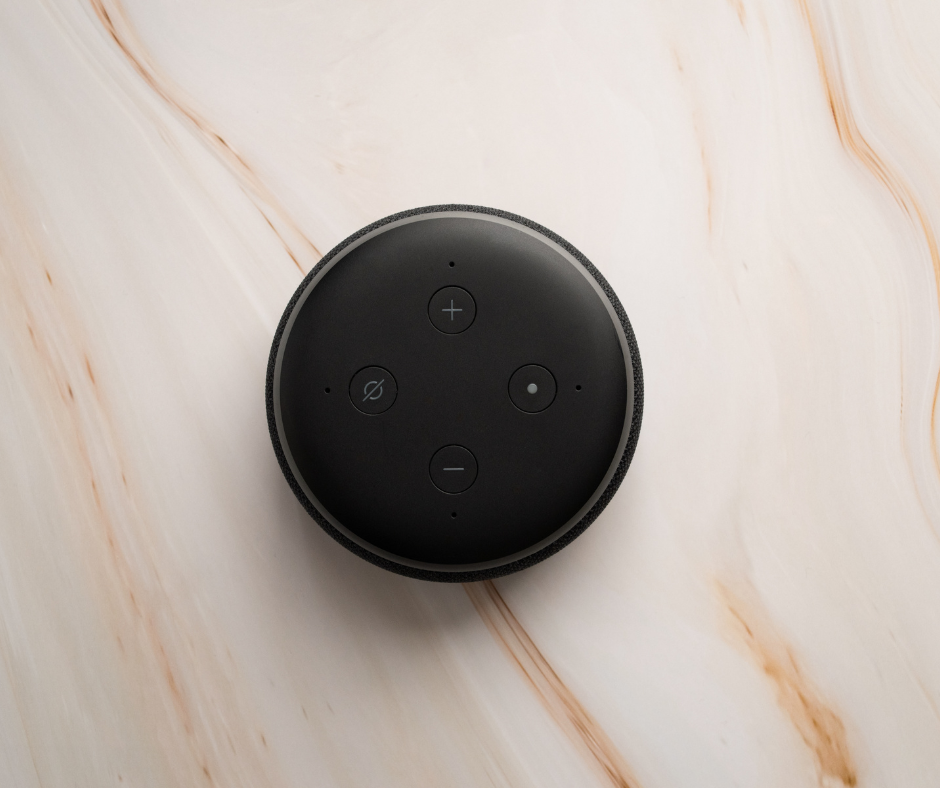As technology continues to evolve, the world of marketing is ever-changing.
Staying ahead of the curve in this fast-paced industry can seem daunting, but it doesn’t have to be! Keeping up with the latest trends and predictions for the next 10 years is key if business owners want to stay competitive in the marketplace.
In this blog, I will explore some of the upcoming shifts that may shape marketing strategies over the next decade and how data has become a powerful tool at your disposal.
With just a few smart decisions now, you could enjoy a profitable return on investment in no time.
The changing marketing landscape
Marketing has undergone a remarkable transformation over the last few years and the pace of change is growing every day. The emergence of new technologies and techniques is radically changing the way companies approach their customers in ways that once felt like a pipedream.
One of these trends is the growing use of data-driven marketing. Decisions are being made based on large amounts of data gathered from various sources such as social media, customer feedback and web analytics and combining the data to provide true and actionable insights. This helps companies to understand how their customers behave, their preferences and attitudes towards their products or services.
Thanks to data, businesses can make more informed decisions and create more targeted and personalised campaigns.
As the importance of data continues to grow, it’s clear that successful companies moving forward will need to embrace a data-driven approach to marketing and learning how to represent complex data in a visual manner that can be communicated at every level.
Exploring emerging trends in marketing such as AI, machine learning & personalisation
Marketing is a constantly evolving field and emerging trends like artificial intelligence, machine learning and personalisation are shaking up the industry.
These cutting-edge technologies are transforming the way brands reach and interact with their customers, opening up new opportunities for targeted messaging, streamlined campaigns and personalised experiences.

From chatbots that can answer customer inquiries to targeted ads that cater to individual interests, these tools are giving marketers new ways to connect with their audiences and stay ahead of the curve.
As we continue to push the boundaries of what’s possible, it’s clear that the future of marketing is all about innovation and adaptation. Whether you’re a seasoned marketer or just starting out, learning about these emerging trends is essential for staying competitive and driving success in today’s rapidly changing landscape.
Making use of automation tools to optimise processes
Businesses today face immense pressure to remain competitive and stay ahead of the game. One way to achieve this is by automating processes.
Automation tools like marketing automation can help businesses optimise processes and reduce manual labour. With these tools, businesses can streamline their marketing workflow and personalise the customer experience.
Personalisation is a key driver of customer engagement and loyalty and can help businesses create a loyal customer base. By automating processes and deploying marketing automation tools, businesses can improve efficiency, save time and resources, and ultimately drive revenue growth.
But rest assured I am not advocating the use of automation for everyone, the important thing is in choosing the right place to use it for its best advantages whilst not losing your personal approach.
People buy based on emotion, so never sacrifice this by pushing automation too far.
The rise of AI-powered customer experience solutions for better engagement
As businesses seek to provide more personalised experiences to their customers, AI-powered customer experience solutions are on the rise.
One of these being the OBVIOUS, chatGPT, a chatbot that uses natural language processing to engage with customers and provide them with quick and efficient solutions to their queries.
This tool is revolutionising the customer experience by offering round-the-clock support that can handle multiple customers at once, without fatigue or delay.
AI-powered solutions like chatGPT offer a seamless customer experience that helps businesses save time and resources while improving customer satisfaction. As these solutions continue to evolve, they are poised to have a significant impact on the way companies interact with their customers, increasing engagement and driving growth.
With Google effectively giving the green light on using AI to produce web content (in no small part linked with the release of its own AI tool Bard!) The use of AI in marketing is going to increase exponentially.
Although, the use of AI in marketing comes with its share of concerns about intellectual property which is still a very grey area which will take some time to become clearer.
Businesses need to be aware of the legal implications that come with using artificial intelligence and machine learning algorithms. While these technologies can provide invaluable insights, companies should take care to ensure that their data is not misused or stolen by hackers.
Plus, businesses should be aware of the potential for bias in automated decisions, and any resulting ethical considerations that may come with using AI.
Predictive analytics and leveraging customer behaviours
Predictive analytics is an approach that can help you achieve your strategic goals.
By analysing customer behaviours, businesses can understand their customers’ needs and preferences, and make informed decisions accordingly. This helps create personalised experiences, improve customer retention and boost revenue.
Leveraging insights from predictive analytics can also help organisations anticipate market trends and stay ahead of the competition. Ultimately, the ability to use customer behaviours to craft a strategic roadmap is essential for any company looking to thrive in the modern era.
Is VR and AR the dawn of a new era?
Virtual Reality (VR) and Augmented Reality (AR) are rapidly emerging technologies that have already begun to revolutionise the way marketers engage with their customers.
VR offers a completely immersive experience for customers, allowing them to more fully interact with products and services in a simulated environment. AR, on the other hand, overlays virtual content onto the physical world, enabling marketers to create engaging augmented experiences that drive customer engagement.

Both technologies open up a whole range of new opportunities for personalised marketing, from virtual product demonstrations and simulations to targeted ads served in 3D space.
As these technologies become more widely adopted, it’s clear that VR and AR will continue to play an important role in driving success for modern businesses. With the likes of IKEA and Argos using these tools, it shows that adoption is only likely to increase as the main barriers for entry such as cost and complexity continue to come down.
The power of voice
Voice-powered search is a rapidly growing trend that is transforming the way we interact with technology.
Powered by AI and natural language processing, voice-driven devices like Amazon Alexa and Google Home are allowing users to access information, control their home environment, and even make purchases with just a few simple commands.

As these technologies continue to evolve, they are revolutionising how people search for products online, providing an intuitive user experience that makes it easier than ever to find what you’re looking for.
From ordering food to booking flights or finding local businesses in your area, voice-enabled devices offer an unprecedented level of convenience that can help businesses better connect with their customers. As this trend continues to gain momentum, it’s clear that voice-power will be here to stay.
As voice search technology becomes increasingly sophisticated, there are concerns about the accuracy of the data being collected and how it might be used. It’s important for businesses to maintain transparency and clarity when using voice search technology and take appropriate steps to ensure customer privacy is protected.
The future of Social Media
The future of social media is one that promises to be even more immersive, engaging and personalised than ever before.
With the rise of virtual reality (VR) and augmented reality (AR), users will soon be able to interact with their favourite brands in a 3D environment or have an up-close look at products they’re considering buying.
Social media platforms are also leveraging artificial intelligence (AI) to provide more tailored content for each user based on their preferences and interests. This means that businesses can now reach out directly to customers who match specific criteria, allowing them to create highly targeted campaigns that drive conversions.
In addition, voice-enabled technologies such as Amazon Alexa and Google Home are making it easier than ever for people to search for information online without having to type anything into a search bar. As these trends continue to evolve over time, it’s clear that social media will remain an important part of our lives well into the future.
Marketing Strategy will always be essential
No matter how much technology advances, a marketing strategy will still remain the core component of every successful campaign.
Technology can help businesses automate processes and streamline their workflow, but it alone cannot guarantee success.
Without a well-crafted strategy in place, any technological advances may be ineffective or even counterproductive. A strong marketing strategy focuses on leveraging customer insights to craft campaigns that are tailored to their needs and interests.
By taking the time to create a comprehensive plan, businesses can ensure that any technological advances they implement will be used in the most effective way possible. In the end, technology is simply a tool—a powerful one, but still just a tool.
It’s up to marketers to use it in the right way to increase customer engagement and drive profits. By leveraging AI, predictive analytics, VR/AR, voice-enabled devices and other emerging technologies, businesses can create interactive experiences that target their perfect customer in ways that were once far-fetched but now on the close horizon.
The future of marketing agencies
As technology advances, marketing agencies are playing an increasingly important role in helping businesses leverage these new technologies to stay competitive and drive growth.
By leveraging AI, predictive analytics, VR/AR, voice-enabled devices, and other emerging technologies, marketing agencies can help create interactive experiences that target their perfect customer in ways that were once unimaginable.
With the right tools and strategies in place, marketing agencies can develop campaigns that use data-driven insights to better understand customer behaviours and craft personalised messages tailored to each individual’s needs.
As the landscape of digital marketing changes over time, it is clear that the role of modern marketing agencies will only continue to grow as they become essential partners for businesses looking to succeed in today’s digital age.





